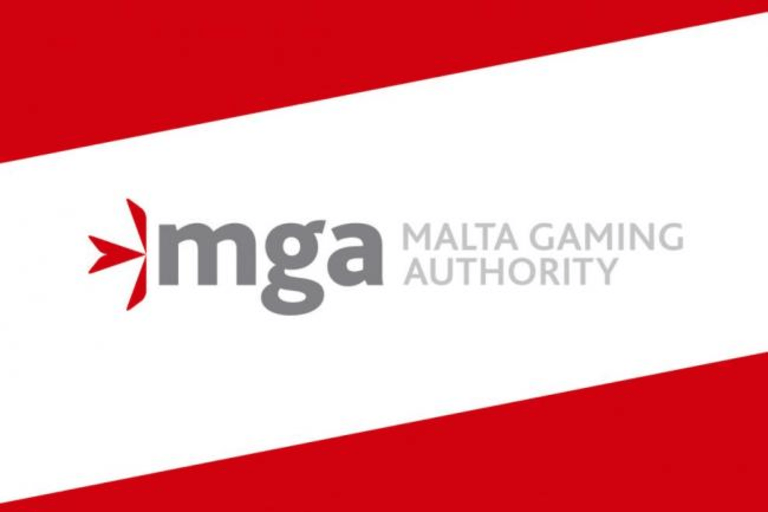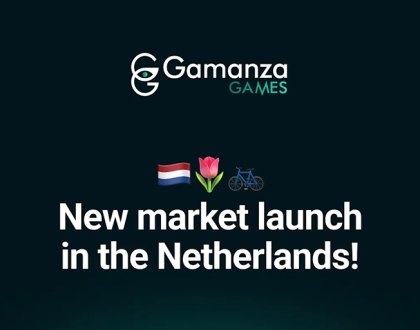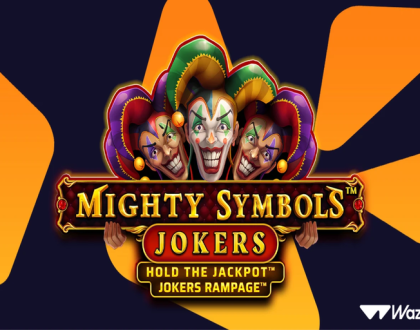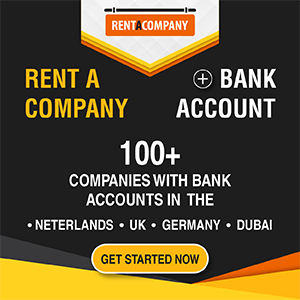Malta Casino-Lizenzierung: Vorteile und Risiken

Malta has become a hotspot for online gaming and casinos, attracting operators with its lenient licensing regulations. While this may seem beneficial to players and businesses alike, it has also raised significant concerns about the integrity and transparency of these operations. In this post, you will explore how Malta's relaxed approach to casino licensing creates a breeding ground for questionable practices, potentially impacting your safety and trust as a player. Understanding these dynamics is crucial when navigating the online gambling landscape in Malta.
Overview of Malta's Gambling License
While many gamblers enjoy the thrill of online gaming, the landscape of gambling regulations varies greatly by jurisdiction. Malta has established itself as a prominent hub for online gambling, primarily due to its lenient licensing regime, attracting numerous operators seeking to capitalize on the burgeoning market.
History of Gambling Regulation in Malta
With roots that trace back to 2001, Malta took significant steps to regulate its gambling industry. The country recognized the potential economic benefits and established the Malta Gaming Authority (MGA) to oversee and license gambling operations. Since then, Malta's regulations have evolved, aiming to balance operator interests with consumer protection.
Types of Licenses Offered
Offered by the Malta Gaming Authority, various licenses cater to different gambling activities depending on your business model. These licenses can significantly impact how you operate in the industry. Below is a breakdown:
| License Type | Description |
| Gaming License | For games of chance and skill. |
| Remote Gaming License | Specifically for online gaming operations. |
| Sports Betting License | Covers all forms of sports betting activities. |
| Poker License | For online poker operations. |
| Lottery License | For conducting lotteries and similar games. |
- Each license type has its requirements and regulations.
- The broad range of licenses allows flexibility for operators.
- Licenses must be renewed periodically to ensure compliance.
- Operators benefit from Malta's strong gaming reputation.
- The growing number of licenses reflects the industry's expansion.
The Application Process for Operators
Types of operators seeking to enter the Maltese market must navigate a comprehensive application process. This involves various stages of evaluation, including financial disclosures and operational details.
Malta's application process is designed to vet prospective operators thoroughly, ensuring they meet high standards of integrity and transparency. You'll need to provide extensive documentation and undergo background checks. Following application submission, the review process can take several months, allowing you to prepare for your operations effectively.
The Attraction of Malta's License for Casino Operators
If you are considering entering the casino industry, Malta's licensing framework offers an alluring opportunity for operators like you. The combination of low tax rates, a rapid approval process, and enhanced market access make these licenses particularly attractive.
Low Tax Rates and Financial Benefits
For many casino operators, Malta's low tax rates are a significant financial boon. With corporate tax rates around 5%, this favorable tax environment allows you to retain more profits, which can be reinvested into your gaming operations for growth and innovation.
Rapid Approval Process
Approval of a license in Malta is notably swift compared to other jurisdictions, which can often be bogged down by long waiting periods. This means you can launch your casino operations without the usual delays that can impact your competitive edge.
To further elaborate, Malta's regulatory body employs a streamlined process where applications can be processed in as little as a few months. This efficiency is particularly beneficial if you have a solid business plan and compliance structure in place, allowing you to hit the market faster than your competitors.
Reputation and Market Access
Any operator looking to thrive on a global scale will find that holding a Maltese license elevates your brand's reputation, enhancing your credibility in the eyes of players and partners alike.
Plus, Malta's licensing grants you access to a primarily European market, along with many other jurisdictions worldwide that recognize Maltese regulations. This extensive reach can significantly expand your player base, providing you with countless growth opportunities in an ever-evolving gaming landscape.
Concerns Surrounding Lenient Regulations
For many, the growing prevalence of online casinos in Malta raises serious concerns about the potential for inadequate regulatory practices. These lenient licensing processes can create environments where unsavory operations flourish, leading to various risks for players and the industry as a whole.
Risk of Money Laundering
Money laundering is a critical concern for anyone engaging in online gambling. The relatively lax regulations in Malta may inadvertently create opportunities for criminal organizations to exploit these platforms, thereby flouting international financial laws and damaging the integrity of the gaming industry.
Protection of Player Rights
Laundering is not the only issue at hand; your rights as a player could also be compromised. The absence of stringent regulations can lead to unfair practices by casinos, making it difficult for you to recoup losses or resolve disputes effectively.
Concerns about player protection arise from the lack of clear enforcement mechanisms. In a landscape where operators feel unaccountable, you may find yourself vulnerable to unjust treatment, such as delayed payouts or unresolved complaints, diminishing your overall gaming experience.
Lack of Adequate Oversight
Surrounding these issues is the pressing problem of inadequate oversight within Malta's gambling framework. When regulations are too lenient, there is often a lack of rigorous checks that should ensure compliance, which can leave you, as a player, open to various types of exploitation.
The failure to implement sufficient oversight mechanisms can lead to a chaotic atmosphere where operators are not held to high standards. This environment jeopardizes your safety and security, as it becomes increasingly difficult to differentiate between reputable casinos and those engaging in unethical practices. Understanding this landscape is crucial for anyone looking to gamble responsibly.
The Impact on Local Communities
Unlike other regions with stricter gaming regulations, Malta's lenient licensing has significant implications for local communities, often presenting a duality of economic advancement and social challenges. As Malta strides forward with its casino industry, the very fabric of the community can be affected, raising questions about the long-term effects on its residents.
Economic Benefits vs. Social Costs
Local communities may experience economic benefits from the influx of casino revenue, yet these gains often come with considerable social costs, including increased crime rates and declining community wellbeing. The challenge lies in balancing these financial advantages with the potential detriment to your neighborhood's quality of life.
Employment Opportunities
Benefits of the casino industry include the creation of numerous employment opportunities for locals. This influx of jobs can provide residents with much-needed income and stability. However, it's crucial to evaluate whether these positions offer sustainable career paths or merely temporary relief.
Communities can often rely on the job market that casinos create; positions in hospitality, security, and gaming management are plentiful. While these jobs may provide immediate financial support, the reliance on a volatile industry brings uncertainties. You need to consider whether these opportunities will uphold long-term growth or lead to employment instability, depending heavily on casino performance and regulations.
Problem Gambling Concerns
Social implications of lenient licensing also raise alarms about problem gambling. As casinos proliferate, your community may face an increase in gambling addiction cases, negatively impacting individuals and families. It's necessary to remain aware of the harmful consequences that can arise from unchecked gambling access.
To counteract the rise in gambling issues, it's vital to have support systems in place. You should encourage the local government and casino operators to implement responsible gambling programs, offering resources for those struggling with addiction. By fostering an environment of awareness and support, you can help mitigate the risks and protect the wellbeing of your community while still enjoying the economic benefits of the gaming industry.
Comparing Malta's Approach to Other Jurisdictions
Once again, you will find that Malta's lenient licensing poses a stark contrast to regulatory frameworks in other jurisdictions. This comparison sheds light on how different agencies enforce rules and standards, ultimately affecting the integrity of casino operations.
| Jurisdiction | Regulatory Body |
|---|---|
| Malta | Malta Gaming Authority |
| United Kingdom | UK Gambling Commission |
| New Jersey, USA | Gambling Authority of New Jersey |
| Sweden | Swedish Gambling Authority |
| Australia | Various State Regulators |
The UK Gambling Commission
With the UK Gambling Commission, you see a robust regulatory framework aimed at promoting a safe and fair gambling environment. It enforces strict licensing criteria and regularly reviews operators to ensure compliance, nurturing a culture of accountability that is vital for consumer protection.
The Gambling Authority of New Jersey
Any discussion of rigorous regulatory practices should include New Jersey's Gambling Authority. Known for its stringent licensing process, this authority conducts thorough vetting of operators and has a proactive approach to safeguarding players' interests.
The state's regulatory landscape has helped to establish New Jersey as a benchmark for responsible gaming. The Gambling Authority implements measures such as responsible gaming protocols, strong fraud prevention, and regular audits, providing a clear template of how a well-regulated market can thrive. Your understanding of this jurisdiction highlights the potential shortcomings in Malta's approach.
Innovations in Regulation in Other Countries
Gambling regulatory bodies in other countries have been making strides in adopting innovative measures. These advancements often focus on technology-driven solutions, such as digital identification systems and advanced analytics to monitor operational integrity.
Another notable development is the collaborative efforts among various jurisdictions to share best practices and data. Countries like Sweden and Australia are proactively adopting updated regulations that can respond more dynamically to emerging challenges, such as online fraud and responsible gaming. For you, this serves as a reminder of how more rigorous regulatory policies can enhance the safety and credibility of the gambling landscape compared to Malta's more lenient approach.
The Role of Technology in Gaming Operations
Now, as technology advances, it plays a crucial role in shaping the gaming operations landscape, particularly in Malta. The island's lenient licensing approach has attracted numerous operators, leading to a dynamic environment for gaming services. However, this rapid evolution also raises critical questions about compliance and data protection, as the industry strives to balance innovation with regulatory adherence.
Online Gambling Platforms and Compliance
Operations that involve online gambling platforms are often required to navigate a complex web of regulations. While Malta provides a favorable environment for many operators, ensuring compliance with both local and international laws remains vital. This compliance not only protects your interests as a player but also helps maintain the integrity of the market.
The GDPR and Data Protection
Any reputable online casino must adhere to the General Data Protection Regulation (GDPR), which safeguards your personal information. This regulation mandates that operators ensure the security and privacy of your data, offering you reassurance as you engage with these platforms.
Online, you should be aware that GDPR compliance means your consent is required for any data collection. Casinos must also provide clear information regarding how your data is used and stored, further promoting transparency. If you ever have concerns about your data, reputable operators offer accessible avenues for you to inquire or seek remediation.
Emerging Technologies in Casino Operations
Protection through emerging technologies has become integral to modern casino operations. Innovative solutions, such as blockchain and artificial intelligence, enhance security and streamline processes, safeguarding both operators and patrons alike.
Gambling operators increasingly leverage technologies like AI to personalize your gaming experience while also monitoring for fraudulent activities. Blockchain technology ensures transparent transactions, adding another layer of trust to your interactions with casinos. As these technologies evolve, you can expect a gaming environment that prioritizes your security and overall experience.
Summing up
To wrap up, your understanding of Malta's lenient licensing reveals significant concerns surrounding questionable casino operations. The relaxed regulatory environment may attract operators seeking minimal oversight, potentially jeopardizing player safety and integrity in the gaming industry. As you navigate this landscape, it's imperative to stay informed and vigilant about the risks associated with Malta-based casinos and their practices. Being aware of these issues can help you make more informed decisions when engaging with online gambling platforms.
FAQs
What are the main types of gambling licenses issued by Malta?
Malta issues several types of gambling licenses, including Gaming Licenses for games of chance and skill, Remote Gaming Licenses for online operations, Sports Betting Licenses, Poker Licenses for online poker, and Lottery Licenses for conducting lotteries and similar games.
How does Malta's tax environment benefit casino operators?
Malta offers a low corporate tax rate of around 5%, which allows casino operators to retain more of their profits. This favorable tax environment supports growth and innovation within the gaming sector.
What are the risks associated with Malta's lenient gambling regulations?
Lenient regulations in Malta can lead to risks such as money laundering, inadequate player protection, and insufficient oversight, which may result in unfair practices and potential exploitation by unscrupulous operators.
How does Malta's licensing process compare to other jurisdictions?
Malta's licensing process is relatively swift, allowing operators to launch their businesses faster compared to jurisdictions with more stringent approval processes, like the UK or New Jersey, where regulations are stricter and oversight more rigorous.
What role do emerging technologies play in casino operations in Malta?
Emerging technologies such as AI and blockchain are increasingly used in Malta's casino operations. AI enhances personalization and fraud detection, while blockchain ensures transparent transactions, contributing to a safer gaming environment.
Michael
With over 20 years experience in web design, SEO and website promotion I always give you an expert advice in regard to any issues related to your Site Design, SEO, Internet Marketing, Promotion, Backlinks, Site Content. In order to help you find out what is missing or can be improved and get higher rankings in Google and more traffic.
Recommended Posts

Gamanza Games Expands into the Dutch Market
October 5, 2024

Evolution’s Live Casino Studio Opens in Prague
October 5, 2024

Discover Mighty Symbols: Jokers by Wazdan
October 5, 2024




